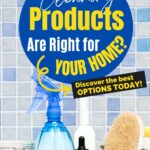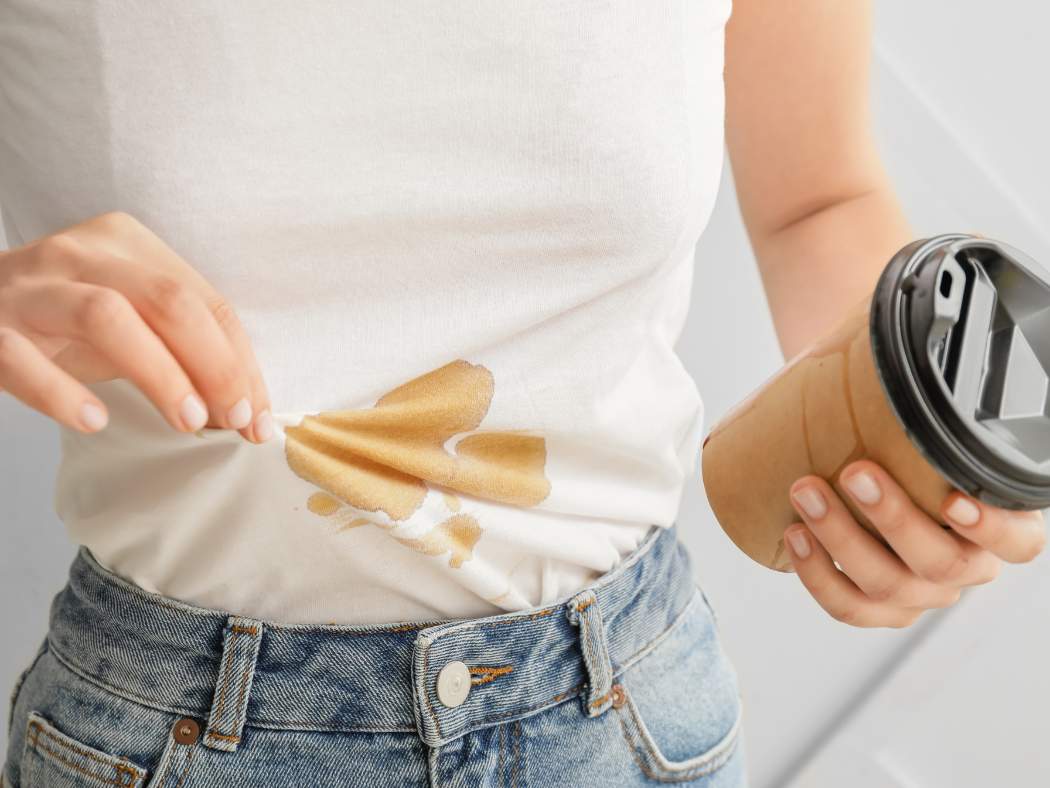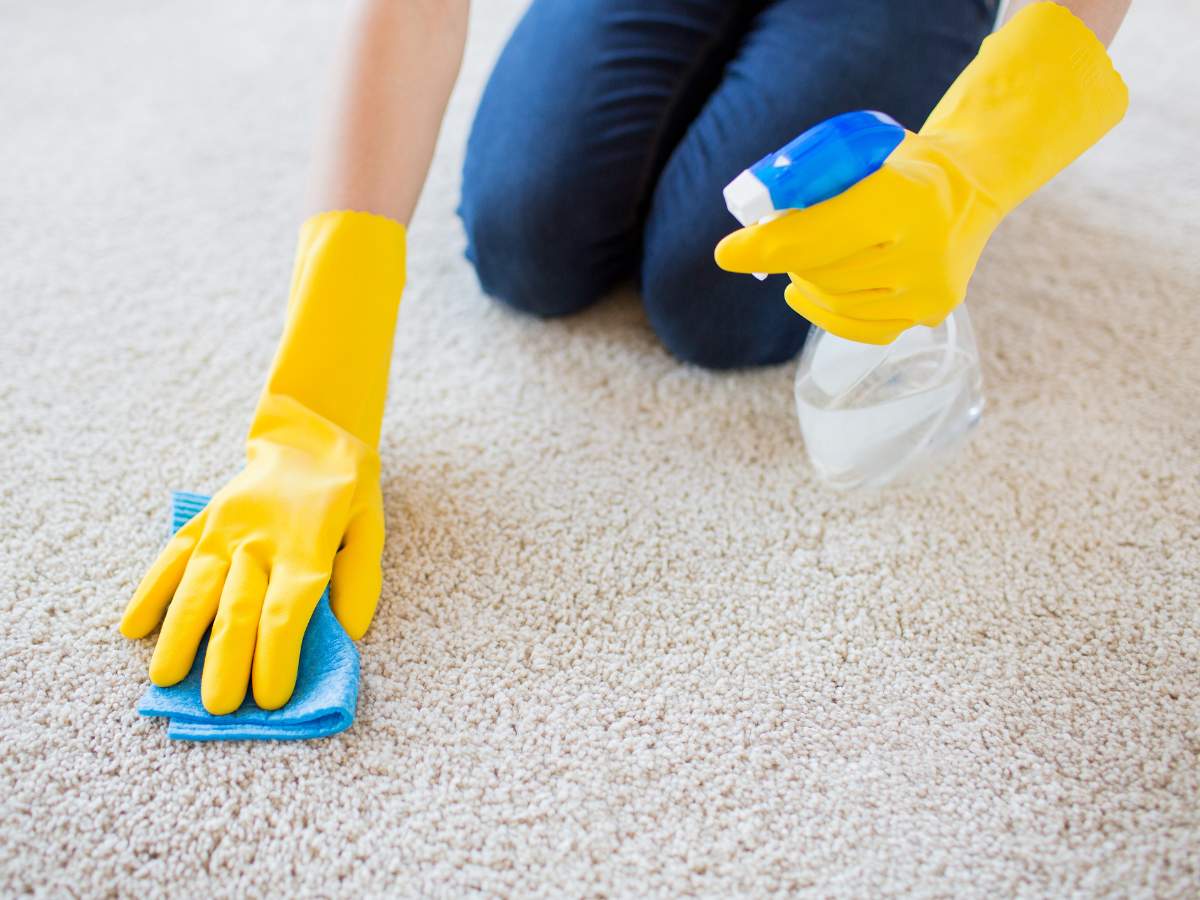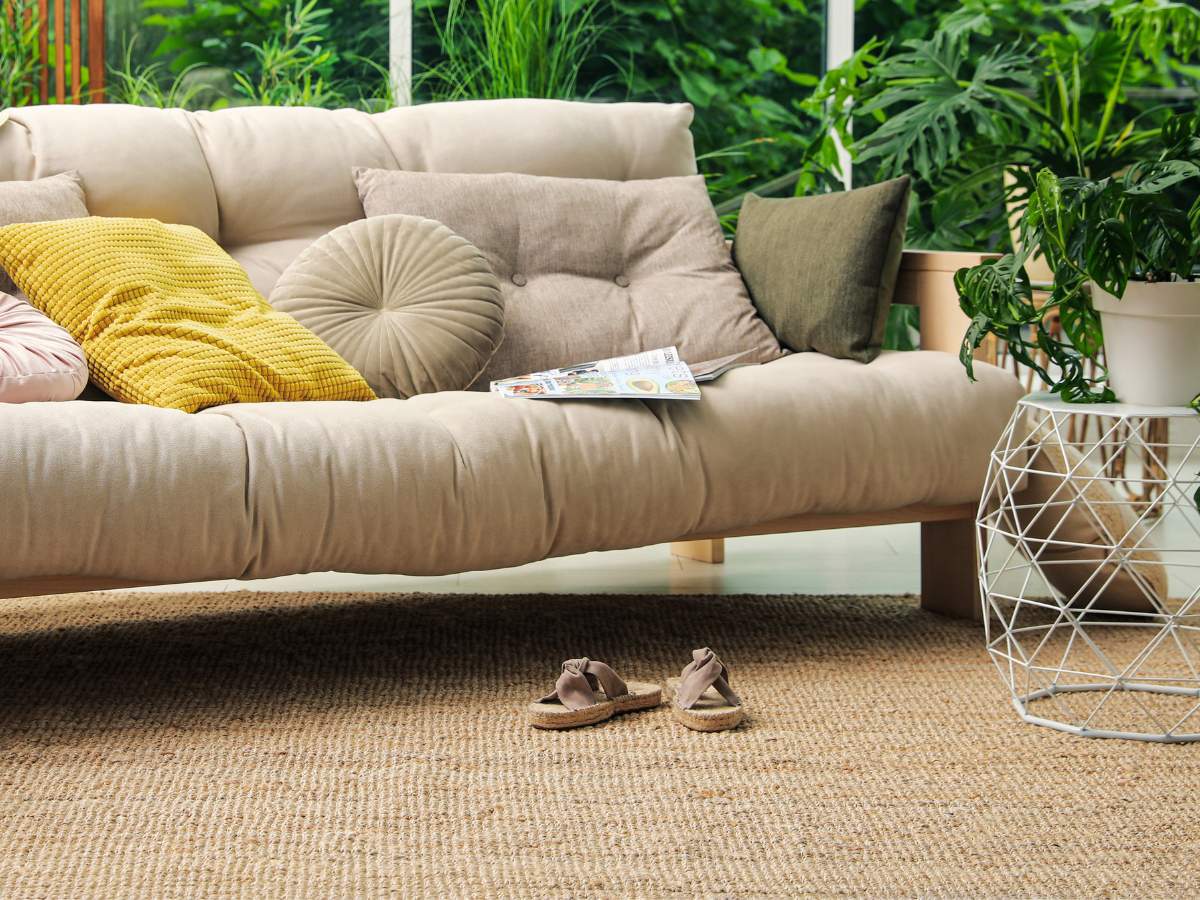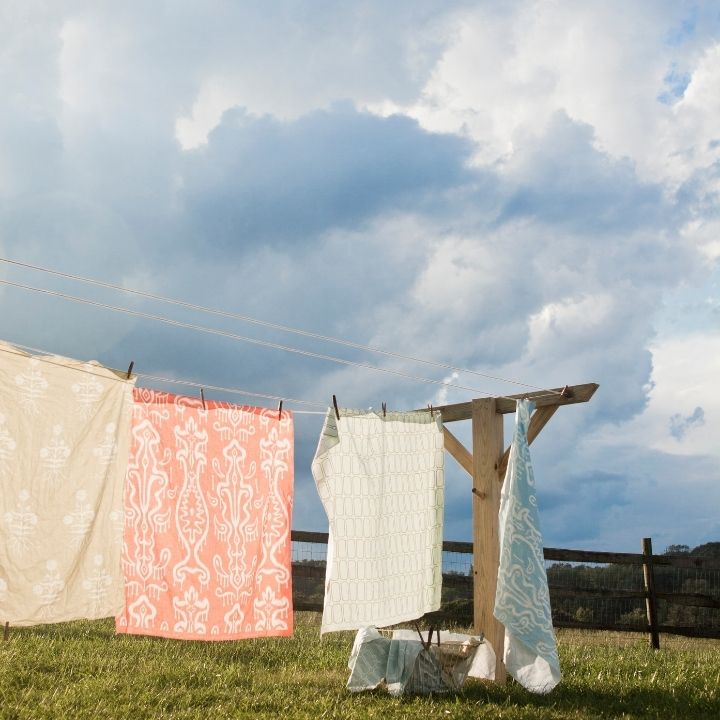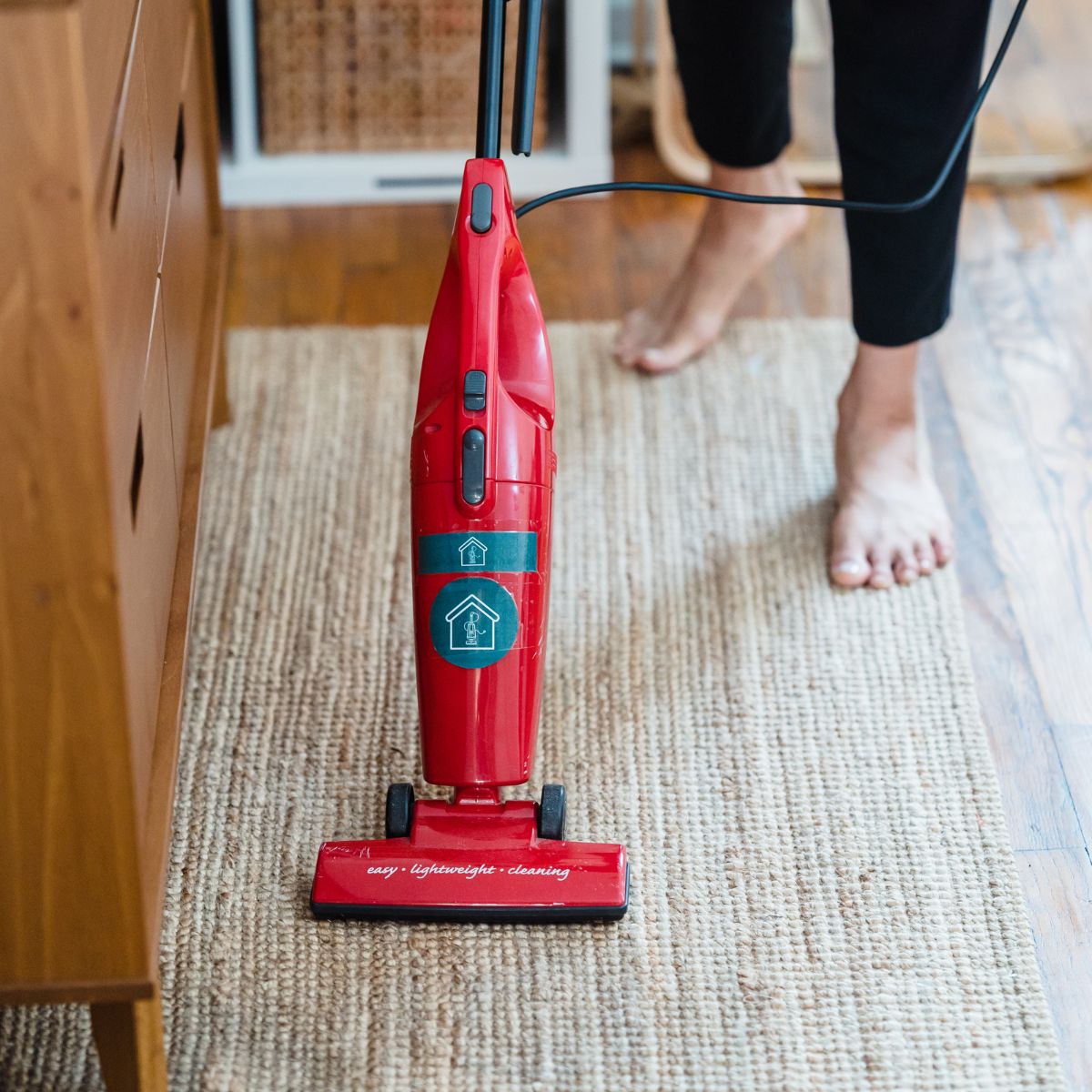Which Eco-Friendly Cleaning Products Are Must-Haves?
As a participant in the Amazon Services LLC Associates Program and other affiliate programs, Easy Homemade Life may collect a share of sales or other compensation from the links on this page. This comes at no additional cost to you, and all the prices and availability are accurate at the time of publishing.
Switching to eco-friendly cleaning products reduces your environmental impact and helps keep your family safe from harmful chemicals, especially volatile organic compounds or VOCs.
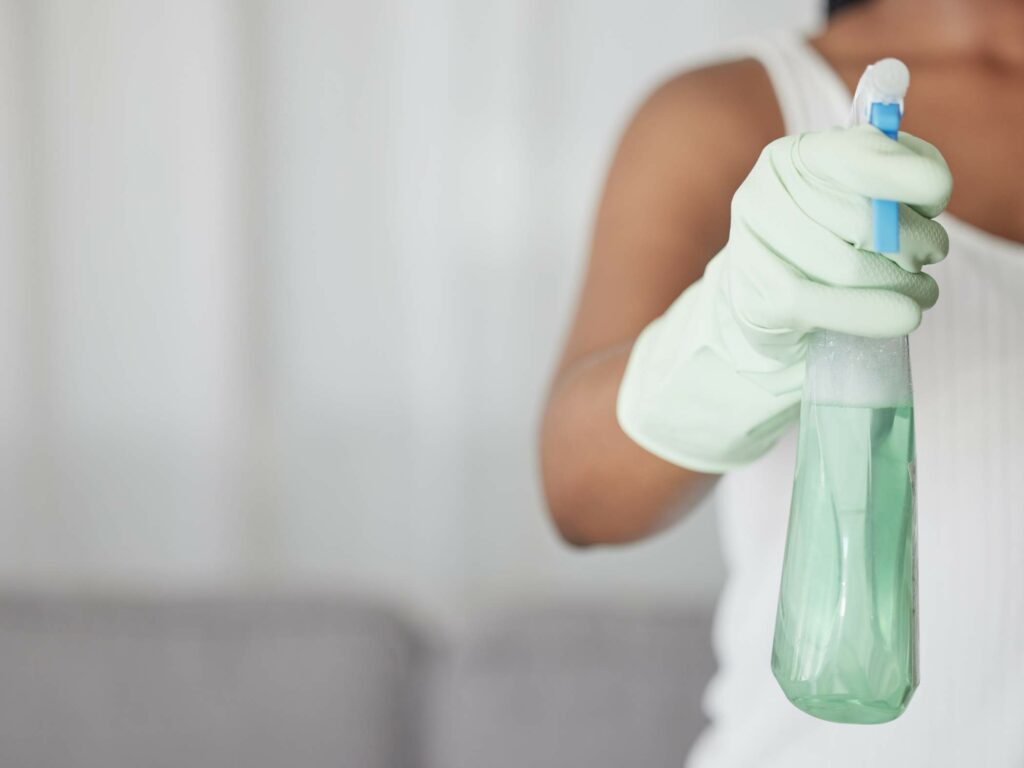
However, many cleaning brands tout the words green, eco-friendly or sustainable on their packaging. So, how do you know which ones truly mean what they say? Let’s look at how you can find true eco-friendly cleaning products, plus nine of my top recommendations!
9 Best Eco-Friendly Cleaning Products For The Whole House
Among the thousands of eco-friendly cleaning products available today, a handful stand out for their quality and value for money. Here are some of my top picks:
Best All-Purpose Cleaner: Grove Co. Multi-Purpose Cleaner
As much as possible, I use my DIY all-purpose cleaner around our home. I don’t put vinegar in it since it isn’t ideal for cleaning stone floor tiles, hardwood floors, marble, or granite. However, if I run out of my homemade cleaner, Grove Co.’s multi-purpose cleaner is my go-to.
This multi-purpose cleaner comes with concentrate refills plus a free glass spray bottle. It’s powerful against grease without leaving any residue, and the natural fragrance doesn’t hurt my nose, even though I use a lot of it.
It’s not just me who is a fan of reducing waste. Tamara from Thriving In Parenting told me, “True eco-friendliness extends beyond natural ingredients — it means no plastic bottles or plastic packaging. Although the cost may be higher, the satisfaction of knowing we’ve significantly reduced our plastic waste is invaluable.”
Best For Laundry: ECOS Laundry Detergent Liquid with Enzymes
I find doing laundry very therapeutic. Every laundry day, I like to diffuse my clean cotton essential oil recipe to make our home smell like fresh linen. Naturally, I make my own homemade laundry soap so that I have full control of the ingredients that go into our clothes and what ends up in the environment.
Our laundry water will eventually end up in water treatment facilities, but these plants don’t always get rid of all the potentially harmful chemicals from wastewater before they go to local watersheds, rivers or oceans. To reduce your impact, switch to an eco-friendly laundry detergent like ECOS’ paraben-free, phosphate-free and hypoallergenic liquid detergent.
Best For Babies: CleanSmart Nursery & High Chair Cleaner
We all know how sensitive babies can be to chemicals, but there’s also the dilemma of using chemical cleaning products to kill illness-causing germs. This is where CleanSmart’s Nursery & High Chair Cleaner comes in.
I switched to an all-purpose cleaner designed to be baby-safe for as long as my kids are little. It does the job well and gets rid of viruses like RSV and flu and bacteria like E.coli that can end up on changing tables.
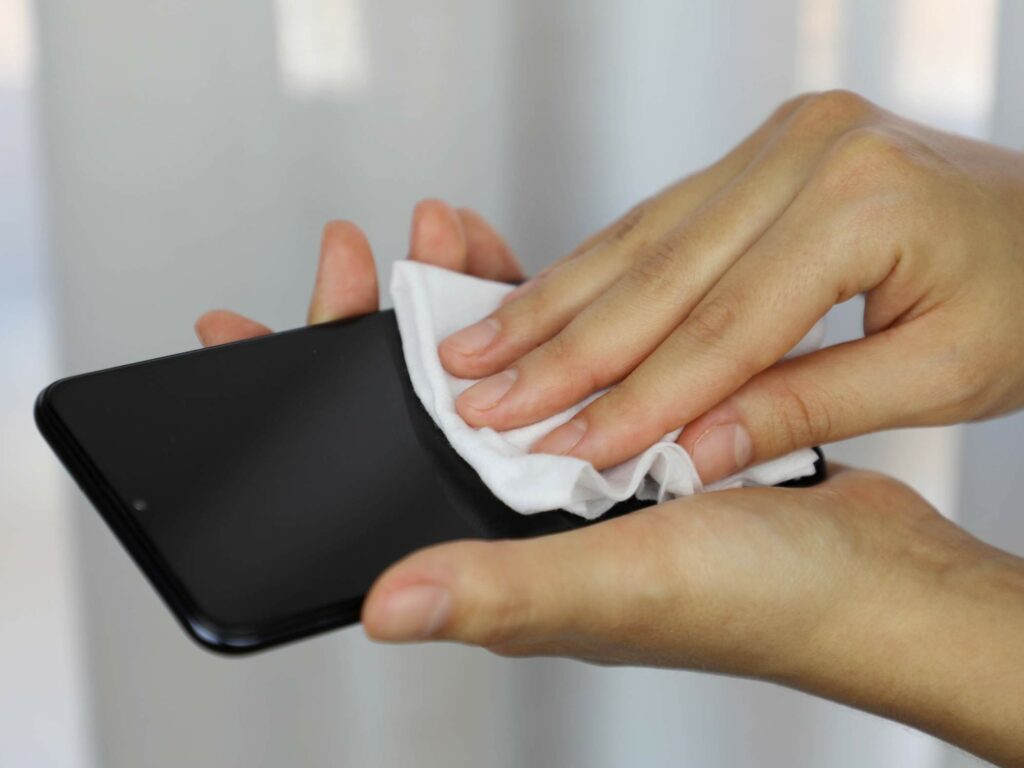
Best Cleaning Wipes: Zogics ecoPRO Plant-Based Disinfecting Wipes
Disinfecting wipes produce a significant amount of waste each year. Unfortunately, the majority of widely available wipes are made with polypropylene plastic.
It took me a while to find truly biodegradable wipes, but luckily, I stumbled across Zogics online. Their disinfecting wipes are made with a plant-based cloth substrate, which will biodegrade faster and won’t harm the environment as much. This EPA-approved product cuts through all types of dirt or grime I’ve used it on. It’s especially useful for wiping down cooking surfaces and hands after cooking chicken.
Best For Dishes: Ginger Lily Farms Plant-Based Liquid Dish Soap
I absolutely hate smelling fragrance on my dishes and cookware. With regular dish soap, sometimes the smell gets stuck, making me feel like there’s soap in my food.
Try Ginger Lily Farm’s fragrance-free plant-based dish soap if you’re in the same boat. It’s made with aloe vera extract, glycerin, and other gentle ingredients on the skin, so handwashing is no problem.
Best For Bathroom: Ecover Toilet Cleaner & ATTITUDE Bathroom Cleaner
I’ve tried plenty of DIY bathroom organization ideas and experimented with many homemade cleaners because like any other homemaker, I want our bathroom to always be clean and organized. I’m proud of my vinegar-free homemade shower cleaner, but I use store-bought products for other parts of our bathroom.
I’m very particular about the cleaning products I use in the bathroom because they have to do their job extremely well to eliminate all the nasty stuff there. Two products do just that.
First is the Ecover Toilet Cleaner. It’s plant-based and septic tank-safe. More importantly, it removes any leftover waste and even tough water stains without the overpowering smell of bleach.
The second one is ATTITUDE’s Bathroom Cleaner, a clean multi-purpose liquid for bathtubs, shower curtains, shower doors, ceramic tiles and countertops. It helps me clean everything in the bathroom without much elbow grease, and the smell is easily tolerable.
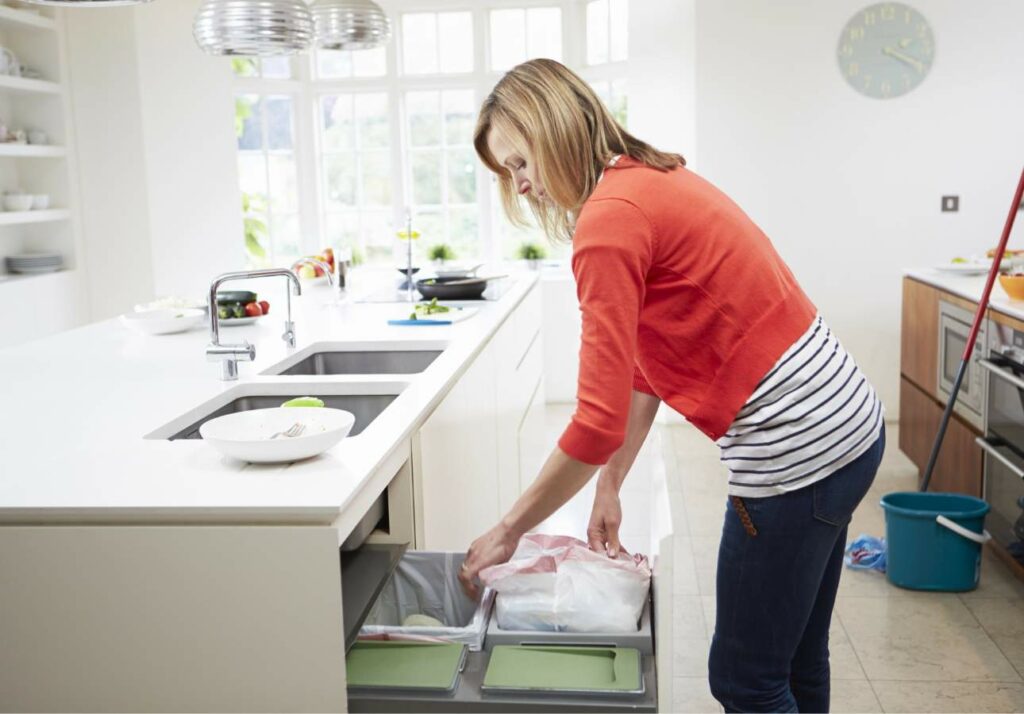
Best Garbage Bags: AYOTEE Compostable Trash Bags
AYOTEE’s Compostable Trash Bags are made with US-certified plastarch material, a renewable plant starch extract. These bags will decompose much faster than regular trash bags, and unlike other renewable bags, they are not brittle and don’t break easily.
The only downside is that you can’t use these for backyard composting. Maybe one day, they will release a product that will work for that, too.
Best Carpet Cleaner: Biokleen Natural Carpet Cleaner
If you’ve been following my blog, you may have observed that I’ve written plenty of carpet-related content. I’ve featured my vinegar and baking soda carpet cleaner, but I’ve also shared how you can remove different types of stains from your carpet including coffee stains, red stains, pee stains, candle wax, and even diarrhea!
We do have a lot of carpets at home, that’s why I’m also particular with the cleaners that I use. Biokleen’s Natural Carpet Cleaner is a safer choice than more widely available carpet cleaners and shampoos. I use it with my home carpet cleaner once every four months to remove tough stains and dirt that regular vacuuming cannot.
Take a look at our guide on how often you should clean your carpet to make sure you’re on top of carpet maintenance.
Best Sponges: HOMERHYME Non-Scratch Natural Dish Sponge
I used to go through many kitchen sponges while using those regular yellow ones. As soon as they looked a little worse for wear, I threw them out because I didn’t want bacteria building up and ending up on my dishes.
I still go through a lot of sponges but am less guilty about throwing them out with HOMERHYME’S natural dish sponges. These are eco-friendly, natural sponges made with cellulose and fine sisal fiber, materials that won’t scratch your dishes or cookware. It’s especially useful for cleaning a ceramic crock pot that is prone to scratches with regular sponges.
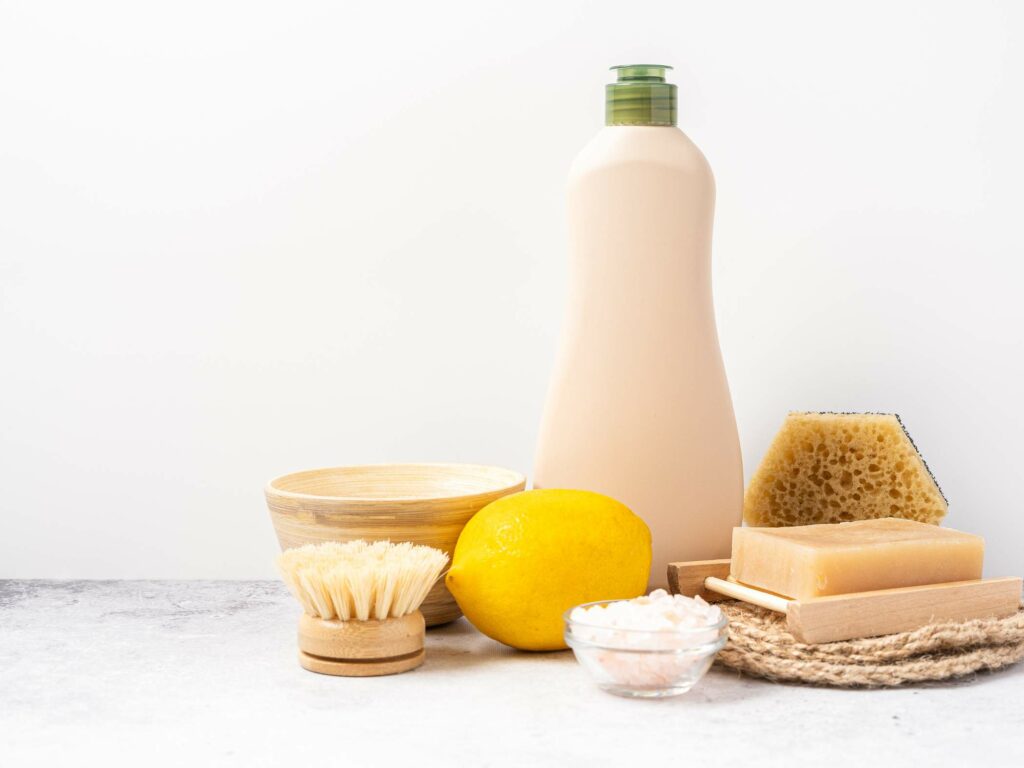
What Are Eco-Friendly Cleaning Products?
As a homemaker and a mom, I try to use all-natural products at home as much as possible. When it comes to household cleaning, I’m a baking soda and vinegar kinda’ gal – I use these natural cleaners to wash my stainless steel pans, my Whirlpool dishwasher, and my carpets. I even use vinegar to remove maggots in trash cans!
If I have to buy cleaners, I make sure that they’re chemical-free, non-toxic, and made with all-natural materials. However, it’s important to research the product first to make sure that they’re truly eco-friendly.
Some brands have joined the green movement and labeled their products with some variation of eco-friendly, even if they aren’t. This is called greenwashing, which uses specific labels to make products seem environmentally friendly without putting these terms into context. Here are a few examples:
- All natural: Suggests a product is made entirely from natural ingredients, but the term is not regulated and can still include synthetic chemicals.
- Eco-friendly: Implies the product is good for the environment; however, without certification, this claim can be meaningless.
- Non-toxic: Vague term not strictly regulated; products can still contain harmful chemicals that cause long-term health issues.
- Biodegradable: Suggests the product will break down naturally, but the timeline is often unspecified and may require specific conditions.
- Chemical-free: Misleading because everything is made of chemicals. Look for products free from specific harmful chemicals instead.
- Green: Very broad and often used without verification. Look for specific details or certifications.
Sure, tons of green products genuinely mean what they say. Sadly, the consumer still has to look deeper into the details.
Luckily, there is some official guidance regarding eco-friendly cleaning products. The Environmental Protection Agency or EPA recommends looking for ecolabel products that pass the EPA’s environmental performance criteria and are considered environmentally preferable.
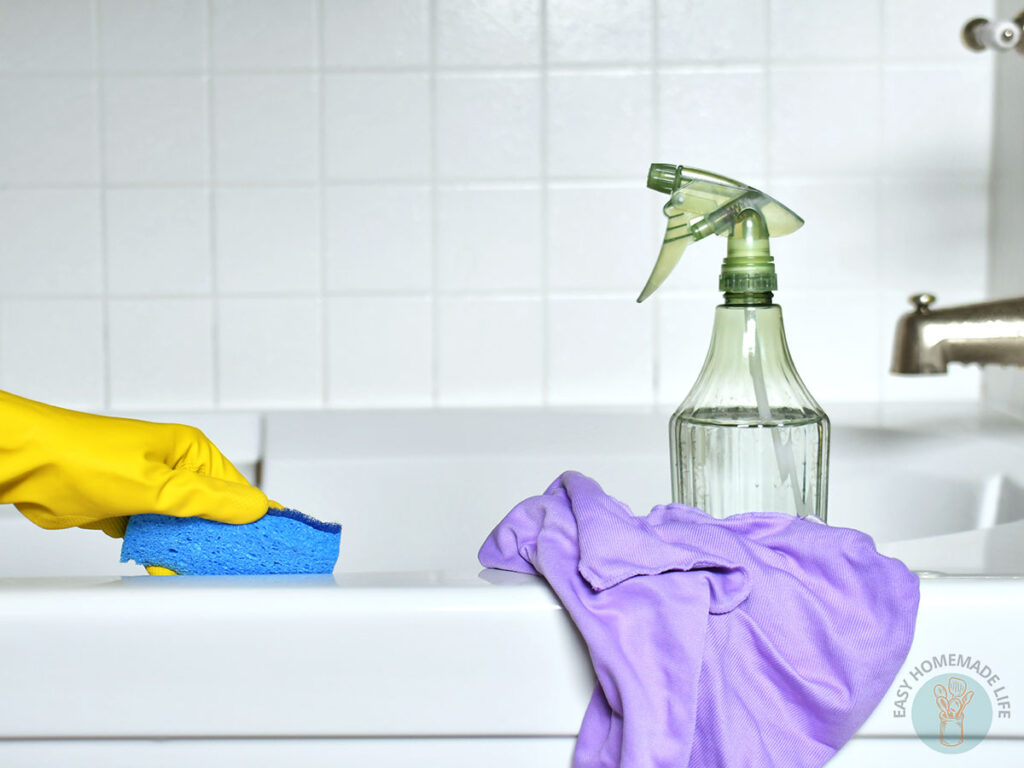
What Ingredients Should You Avoid?
When selecting eco-friendly cleaning products, avoid certain ingredients that can be harmful to both your health and the environment. Take a closer look at the ingredient lists and watch out for these common culprits:
Phthalates
Phthalates are often found in fragranced products like air fresheners, dish soap, and even toilet paper. According to this 2021 study on the effect of phthalates on human health, these chemicals are linked to hormone disruption and can affect the reproductive system. Possible consequences may include negative pregnancy outcomes, precocious puberty, thyroid dysfunction and more.
Triclosan
Triclosan is an antimicrobial agent found in many products labeled as antibacterial, such as soaps and hand sanitizers. However, the FDA warns that this chemical can contribute to antibiotic resistance and has been shown to disrupt hormone function.
Ammonia
Ammonia is a powerful cleaning agent found in many household cleaners, particularly glass and window cleaners. Due to its potency, the CDC recommends against using high amounts of ammonia since it can irritate or burn the skin, eyes, lungs, mouth and throat.
Long-term exposure may lead to more serious health problems, such as chronic cough and lung fibrosis. However, this is more common among people who work in industries like mining and petroleum refining.
Chlorine
Chlorine is more than just a pool-cleaning chemical. Commonly found in bleach and other disinfectants, chlorine can release toxic fumes that are harmful when inhaled, according to the CDC. Exposure to high levels of chlorine can lead to coughing, nausea, and a burning sensation in the nose, throat, lungs, eyes and more.
It is also dangerous when mixed with other cleaning agents. Never mix chlorine with ammonia, acids, or any other cleaning products!
Transform Your Home Into An Eco-Friendly Haven
Using eco-friendly cleaning products is a small yet significant way to help protect the environment, which we can all do. Switching to these products can also help reduce the amount of toxins lurking in your home and, when you buy in bulk, even help you save money.
FAQs
Eco-friendly cleaning products are made from natural, biodegradable ingredients that are non-toxic and free from harmful chemicals. They often use sustainable packaging and are produced by companies committed to green practices.
Yes! Many eco-friendly products clean just as well as conventional ones. Thanks to advances in green chemistry, plant-based ingredients can tackle grease and grime effectively, while natural disinfectants can kill bacteria and viruses.
Look for certifications from trusted organizations like the EPA, Green Seal, and USDA Organic. Read labels for harmful ingredients and research the company’s environmental practices to avoid vague claims like “all-natural” or “eco-friendly” without specifics.
This article originally appeared on Primal Edge Health.

